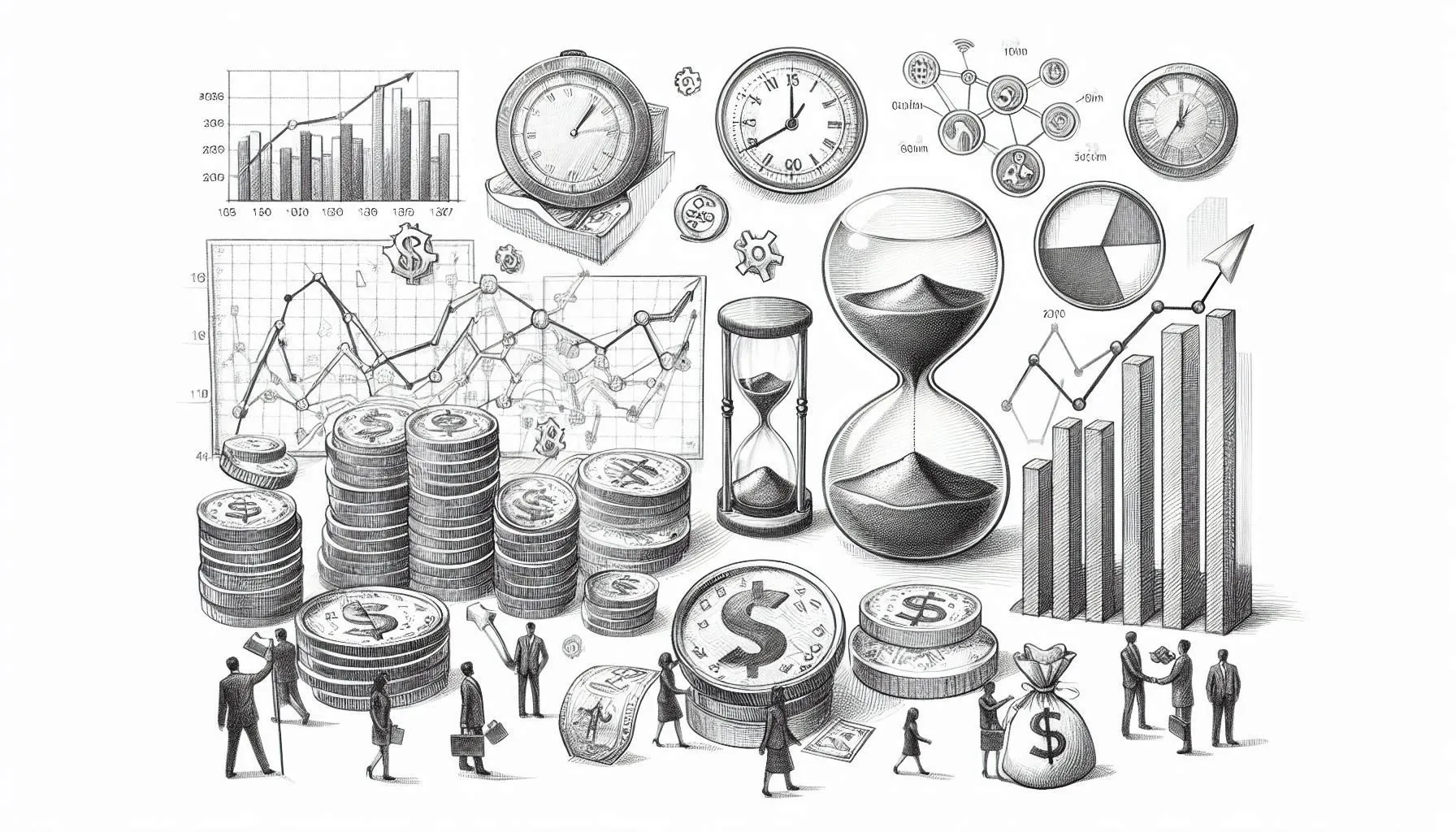The Power of Compounding in Investment

Use the power of Compounding to get your money's worth, worth it.
What is Compounding?
Compounding is the process where the returns on your investments generate additional returns over time. It’s like a snowball effect—your investment earns money, and then that money starts earning more money. Compounding happens when the interest or returns you earn on an investment are reinvested, so you earn returns not just on your original amount but also on the accumulated returns from previous periods.
In simple terms, the longer you let your money grow, the bigger the gains you’ll see. This is why compounding is often referred to as "the most powerful force in finance."
How Does Compounding Work?
Let’s break it down with an example:
- Imagine you invest RM 1,000 at an annual return of 5%.
- After 1 year, you’ll have RM 1,050 (your original RM 1,000 + RM 50 in returns).
- In Year 2, you’re not just earning 5% on RM 1,000 anymore - you’re earning 5% on RM 1,050. So at the end of Year 2, you’ll have RM 1,102.50.
- In Year 3, you’re earning 5% on RM 1,102.50, and it keeps growing!
Over time, this compounding effect becomes more noticeable. If you leave that money untouched for 10 or 20 years, it can grow significantly.
Why is Compounding Powerful in the Long Term?
The longer you allow your investments to compound, the more exponential the growth becomes. Here’s a simple example to show how powerful this can be:
If you invest RM 10,000 at 7% annual return and let it grow for:
- 10 years, it will grow to about RM 19,671
- 20 years, it will grow to about RM 38,696
- 30 years, it will grow to about RM 76,122.
Notice how in the later years, the growth accelerates. This is the magic of compounding - early on, the growth might seem slow, but as time passes, the returns start to multiply much faster.
Daily Life Examples of Compounding
You don’t need to be a finance expert to apply the power of compounding in your daily life. Here’s how you can make compounding work for you:
1. Saving and Investing Early
The earlier you start investing, the more time your money has to compound. Even small amounts saved consistently can grow into a large sum over time. For instance, if you start investing RM 100 a month at the age of 25, at an annual return of 6%, you could have about RM 200,000 by the time you’re 65. Waiting just 10 years to start could result in significantly less, showing the importance of starting early.
2. Reinvesting Dividends
When you invest in stocks or mutual funds that pay dividends, you can choose to reinvest those dividends instead of cashing them out. Reinvesting allows your dividends to generate more returns, boosting the compounding effect.
3. Avoiding High-Interest Debt
Compounding can work against you when it comes to debt. Credit cards, for example, charge interest on the balance you don’t pay off each month. If you don’t pay off your debt quickly, you’ll be paying interest on interest, which can cause your debt to spiral out of control. Avoiding high-interest debt or paying it off as soon as possible is critical to keeping compounding working in your favor.
4. Investing in Retirement Accounts
Retirement accounts like the Employees Provident Fund (EPF) in Malaysia benefit from compounding over time. Contributions made to these accounts are invested, and the returns earned each year are reinvested, which helps grow your retirement savings significantly by the time you retire.
Example 1: Starting Early vs. Starting Late
Imagine two friends, Aisha and Sara. Aisha starts investing RM 5,000 per year at age 25 and stops at age 35 (investing for just 10 years). Sara starts later, investing RM 5,000 per year starting at age 35 and continues until she’s 65 (30 years). Both earn an annual return of 7%.
- Aisha's total investment: RM 50,000 over 10 years
- Sara's total investment: RM 150,000 over 30 years.
By age 65
- Aisha will have more money than Sara, even though she invested less. This is because Aisha's money had more time to compound!
Example 2: Monthly Savings
If you save RM 500 a month and invest it in a fund with a 6% annual return, the power of compounding could make your savings grow substantially:
- In 10 years, you’d have around RM 81,000
- In 20 years, you’d have about RM 231,000
- In 30 years, you’d have over RM 500,000.
This shows how small, regular savings can grow dramatically over time thanks to compounding.
How to Apply Compounding in Your Daily Life
1. Start Investing Early
Even if you don’t have much to invest, starting small and early can make a big difference. The longer your money is invested, the more it can compound.
2. Be Consistent
Regular contributions, even small ones, add up over time. Whether it's monthly savings, investing in a retirement account, or setting up automatic transfers to an investment fund, consistency is key to leveraging compounding.
3. Reinvest Your Earnings
Always reinvest the returns you make from your investments. Whether it's dividends from stocks or interest from savings accounts, reinvesting allows your returns to generate even more returns.
4. Think Long-Term
Compounding works best when given time. Avoid dipping into your investment unless absolutely necessary, and stay patient. Over the long term, you’ll see the exponential growth that makes compounding so powerful.
In Summary
The power of compounding allows your money to grow faster the longer you invest it. By starting early, being consistent, and reinvesting your returns, you can make compounding work for you. Even small amounts can grow into significant sums over time, making compounding one of the most important concepts for long-term wealth building.
